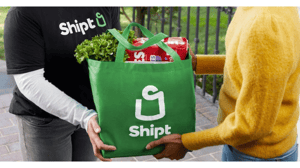CPG COMPANY Nestle USA
The candy-coated image of chocolate bars and strawberry- flavored milk is quickly fading as Nestl builds a new emphasis on nutritional science. The global company has a network of nearly 30 research and development facilities, staffed by more than 300 scientists, around the world. Five of the centers are here in the United States, including one in Solon, Ohio, where Nestl-owned Stouffer's prepared
September 1, 2007
ROBERT VOSBURGH
The candy-coated image of chocolate bars and strawberry- flavored milk is quickly fading as Nestlé builds a new emphasis on nutritional science. The global company has a network of nearly 30 research and development facilities, staffed by more than 300 scientists, around the world. Five of the centers are here in the United States, including one in Solon, Ohio, where Nestlé-owned Stouffer's prepared foods is located.
“You might see researchers working on a new Spa Cuisine product with whole grains and maybe a unique ingredient, like a soybean with Asian flavors,” said Laurie McDonald, corporate spokeswoman for Nestlé USA. “It's a real shared resource and allows us a global perspective on nutrition, trends and product formulation.”
Indeed, nutrition is Nestlé's No. 1 priority here in the United States. One result of this worldwide scientific collaboration is Nestlé Good Start Natural Cultures, the first-ever formula containing probiotics. Even iconic brands like NesQuik and Carnation Instant Breakfast are going sugar-free, while Butoni pastas are now available in whole wheat varieties.
“Even on a product you wouldn't consider traditional nutrition, we're always making improvements,” McDonald said.
With its U.S. reputation mostly in confectionery, Nestlé is approaching wellness in a particularly Eurocentric fashion. While the names of its five nutrition business subsidiaries — health care, infant, performance, weight management and medical — might not inspire foodie poetics, consumers are seeing significant changes at shelf level in the Nestlé products they purchase, like PowerBar, Juicy Juice, Jenny Craig and now Gerber. For example, each product Nestlé USA sells includes a “nutritional compass” on the back of every package.
“It's content on the back of every pack that helps consumers make informed food and beverage choices,” said McDonald.
Nestlé USA's marketing is supported by website programs targeted at specific consumer groups: Everydayeating.com is for people actively living with diabetes; Powerbar.com offers exercise programs and lessons on optimal hydration; and the 3-year-old Verybestkids.com site offers a host of nutrition-related ideas for parents and schools.
About the Author
You May Also Like




